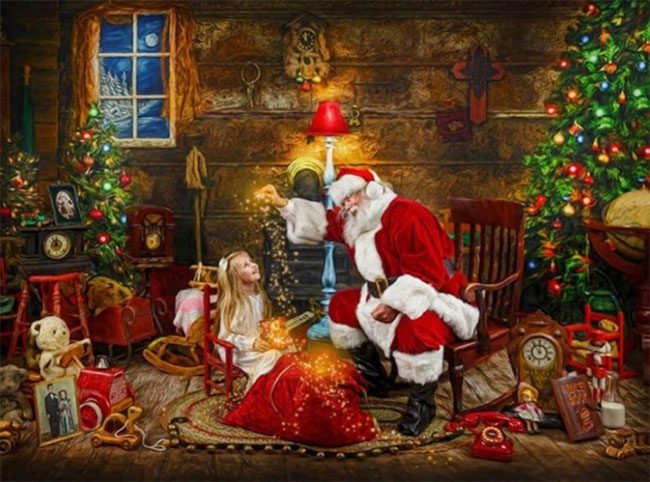Vietnamese people commonly use the term “Noel” to refer to Christmas Day; this term dates back to the French colonial period and originates from the French word – Noël.
What Does Noel Mean?
The name Noel is believed to have originated from the title Emmanuel, an ancient Hebrew term meaning “God is with us,” as recorded in the Gospel of Matthew.
Some say that the term Noël, or its older form Naël, derives from the Latin word nātālis meaning birthday, specifically referring to the day of Christ’s birth.
Others believe that Noël comes from the French word “nouvelles,” which means good news. Its English root is “nowel,” meaning “the sound of joy.” “Noel” represents the good news of Jesus Christ coming into the world to forgive and save humanity.

Many people do not know the meaning of the word “Noel.”
The term Noel was widely used during the Middle Ages in Europe. Christmas carols in both French and English employed this term when referring to the birth of Christ.
What Does Christmas Mean?
The holiday known as Christmas in English derives its name from “Christ,” which is a title for Jesus, originating from “Χριστός” (pronounced Khristós) in Greek. The Vietnamese transliteration is “Ki-tô” or “Cơ-đốc,” meaning the anointed one.
The word “mas” translates to mass or sacrament. Therefore, Christmas essentially means the day of the mass of Christ.
When writing, many people use Xmas instead of Christmas, where “Christ” is replaced by the letter X. This is because the word Christ in English comes from “Χριστός” in Greek. Writing Xmas is actually an abbreviation, using the initial consonant of the word Christ in Greek.

By the 15th century, the abbreviation Xmas was widely used instead of Christmas.
Scholars have yet to confirm exactly when the spelling Xmas was first adopted. Documentation shows that this term began to gain popularity in the early centuries AD, with some researchers suggesting it became common in the 13th century.
By the 15th century, the abbreviation Xmas was widely used in place of Christmas. After the invention of the printing press in 1436, the Catholic Church used it to print documents and theological books. Printing costs were high, so to save money, people sought to write more concisely, leading to the use of Xmas instead of Christmas in printed materials.
As Xmas appeared in official religious texts, this spelling became increasingly widespread.


















































